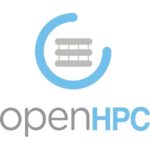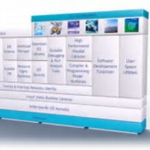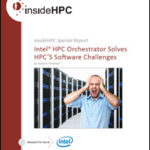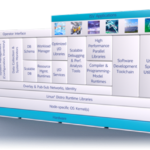To meet some of the biggest HPC software challenges, representatives from more than 25 academic, research, and commercial organizations formed a community project at the end of 2015: OpenHPC. This is the third article in a four-part series that explores going beyond OpenHPC with Intel HPC Orchestrator. Download the full insideHPC Special Report.
Catch Today’s ‘Artificial Intelligence and The Virtuous Cycle of Compute’ Presentation by Intel
At SC17, Intel is reinforcing its ongoing commitment to HPC and AI technologies. If you want to learn more about Intel’s investment in Artificial Intelligence, and the convergence with HPC, then be sure to catch the future-focused presentation on “Artificial Intelligence and The Virtuous Cycle of Compute” by Pradeep Dubey, Intel Fellow, and Director of Parallel Computing Lab.
Challenges to Managing an HPC Software Stack
The HPC system software stack tends to be complicated, assembled out of a diverse mix of somewhat compatible open source and commercial components. This is the second article in a four-part series that explores using Intel HPC Orchestrator to solve HPC software stack management challenges. Download the full insideHPC Special Report.
HPC Software Stacks: Making High Performance Computing More Accessible
More than 200 researchers at the University of Pisa use high performance computing (HPC) systems in their quantum chemistry, nanophysics, genome sequencing, engineering simulations and areas such as big data analysis. The University’s IT Center has moved to a pre-integrated HPC software stack designed to simplify software installation and maintenance. This sponsored post from Intel shows how a pre-integrated, validated and supported HPC software stack allows the University of Pisa to focus on research.
Simplifying HPC Software Stack Management
While most of the fundamental HPC system software building blocks are now open source, dealing with the sheer number of components and their inherently complex interdependencies has created a barrier to adoption of HPC for many organizations. This is the first article in a four-part series that explores using Intel HPC Orchestrator to solve HPC software stack management challenges.
Supporting Diverse HPC Workloads on a Single Cluster
High Performance Computing is extending its reach into new areas. Not only are modeling and simulation being used more widely, but deep learning and other high performance data analytics (HPDA) applications are becoming essential tools across many disciplines. This sponsored post from Intel explores how Plymouth University’s High Performance Computer Centre (HPCC) used Intel HPC Orchestrator to support diverse workloads as it recently deployed a new 1,500-core cluster.
OpenHPC: Project Overview and Updates
Karl Schulz from Intel gave this talk at the MVAPICH User Group. “There is a growing sense within the HPC community for the need to have an open community effort to more efficiently build, test, and deliver integrated HPC software components and tools. To address this need, OpenHPC launched as a Linux Foundation collaborative project in 2016 with combined participation from academia, national labs, and industry. The project’s mission is to provide a reference collection of open-source HPC software components and best practices in order to lower barriers to deployment and advance the use of modern HPC methods and tools.”
insideHPC Special Report: Intel HPC Orchestrator Solves HPC’s Software Challenges
This InsideHPC Special Report explores the challenges of managing open source HPC middleware, and unpacks the unique solution offered by Intel HPC Orchestrator. Intel Orchestrator is the Intel-supported distribution of the OpenHPC stack that has been tested and validated on the most recent hardware. To learn more, download the full white paper.
A Simpler Path to Reliable, Productive HPC
HPC is becoming a competitive requirement as high performance data analysis (HPDA) joins multi-physics simulation as table stakes for successful innovation across a growing range of industries and research disciplines. Yet complexity remains a very real hurdle for both new and experienced HPC users. Learn how new Intel products, including the Intel HPC Orchestrator, can work to simplify some of the complexities and challenges that can arise in high performance computing environments.
Fujitsu Powers KNL Remote Access Program with Intel HPC Orchestrator
In this video from ISC 2017, Tom Krueger from Intel and John Wagner from Fujitsu describe the new KNL Remote Access Program. Now, with the power of Intel HPC Orchestrator, Fujitsu customers can gain access to a small cluster of Intel Xeon Phi processors to test and tune their codes. The freely available cluster environment enables users to participate in activities such as benchmarking, code development, as well as code optimization and validation either using the pre-installed applications or those brought by the user.”












